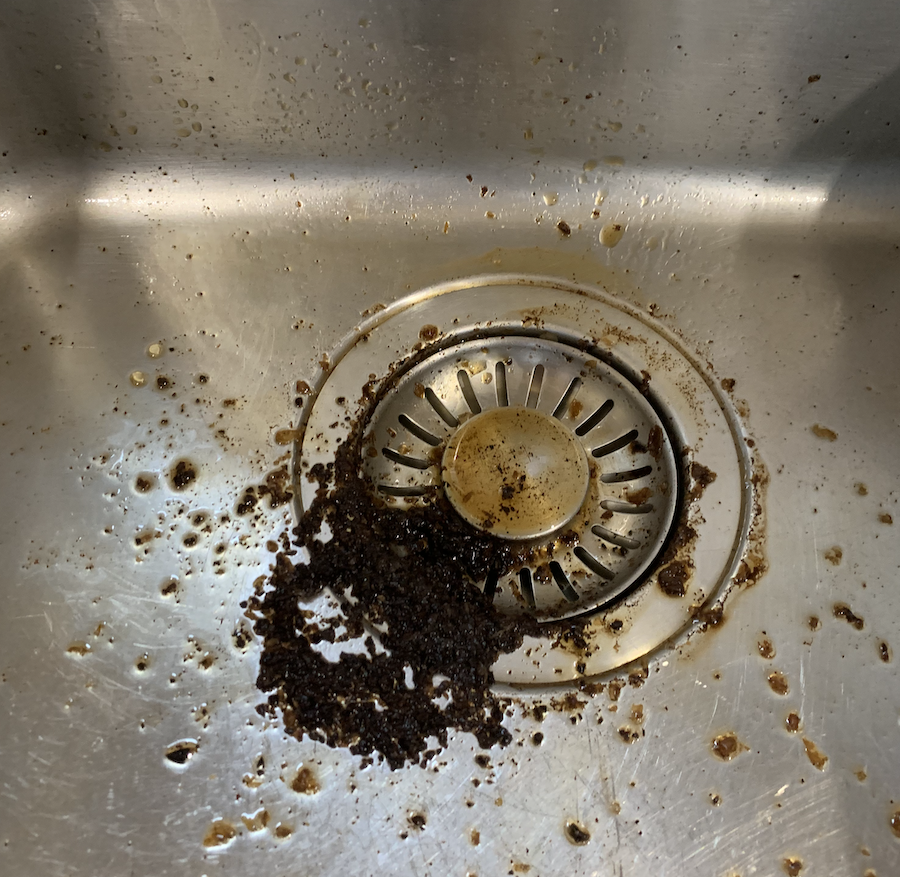Is It Safe to Dispose of Coffee Grounds Down the Sink? - What You Should Know
Is It Safe to Dispose of Coffee Grounds Down the Sink? - What You Should Know
Blog Article
We have unearthed this great article about Can You Put Coffee Grounds in the Sink Garbage Disposal? down the page on the net and figured it made perfect sense to discuss it with you on my blog.

If you're an avid coffee enthusiast, you could be wondering about the best means to deal with your coffee premises. While it might appear convenient to clean them down the sink, this practice can cause numerous problems for both your plumbing and the setting. In this write-up, we'll check out whether it's risk-free to put coffee grounds down the sink and review alternative disposal approaches to think about.
Alternatives to Disposing of Coffee Grounds
Garbage Disposal
If you do not have a composting configuration, an additional alternative is to simply toss your coffee premises in the trash. Make sure to secure them in a compostable bag or container to avoid smells and leak. While this method does not provide the exact same ecological benefits as composting, it's a risk-free and convenient means to deal with coffee premises.
Composting
One environmentally friendly option for dealing with coffee premises is to compost them. Coffee premises are rich in nitrogen, making them an outstanding enhancement to compost heap or containers. As they decay, they add nutrients to the soil, boosting its fertility and texture.
Risks of Putting Coffee Grounds Down the Sink
Plumbing Issues
Among the main concerns with taking care of coffee premises down the sink is the danger of blocking your pipes. Coffee premises don't liquify in water and can accumulate with time, forming a thick sludge that can obstruct drains and bring about pricey plumbing repairs.
Environmental Impact
Past the potential damages to your plumbing, placing coffee premises down the sink can additionally damage the atmosphere. When cleaned right into the sewer system, coffee premises can contribute to blockages in sewage system lines and treatment centers. Additionally, the high concentration of organic matter in coffee grounds can deplete oxygen degrees in rivers, negatively affecting aquatic life.
Tips for Proper Disposal
Routine Maintenance
No matter just how you choose to dispose of your coffee premises, it's vital to preserve your plumbing consistently. Arrange periodic drain cleanings to eliminate any kind of build-up and guarantee that your pipes continue to be clear and free-flowing.
Use a Sink Strainer
To avoid coffee premises from entering your sink's drainpipe to begin with, think about making use of a sink strainer. These cost-effective gadgets catch solid fragments, including coffee grounds, avoiding them from causing clogs.
Conclusion
While it might be tempting to clean coffee grounds down the sink for benefit, doing so can have major repercussions for your plumbing and the setting. Rather, consider composting your coffee grounds or getting rid of them in the garbage. By taking on liable disposal techniques, you can enjoy your coffee guilt-free while reducing your ecological impact.
Coffee Grounds Down The Drain: Are They OK?
Can Coffee Grounds Go Down the Sink?
You may be thinking, “But I pour them down the sink drain every day and I’ve never had a clogged drain!” You see, coffee grounds come from coffee beans, which are virtually rock hard by the time they’re ground and brewed. You certainly wouldn’t want to grind up the pit from a peach, apricot, or nectarine that is about just as hard because they wouldn’t break down like other foods, and it’s the same with coffee beans!
If you usually grind coffee beans in the garbage disposal because it seems the cleanest and convenient, we don’t fault you for that. And anyone who has ever had to clean up the trash with spilled coffee grounds after a dog got into it would understand the rationale. Unfortunately, coffee grounds do not break down in water, so instead of grinding up and washing away as normal foods do in a garbage disposal, they clump together and as time goes by, the grounds can form a clump and pack the drain until it develops a clog.
What to Do With Coffee Grounds
So, what do you do with coffee grounds if you can't put them down the drain? You could of course just throw them in the garbage, but we encourage you to give these practical uses for them a try!
Since coffee grounds contain key minerals for plant growth, you can use them to fertilize your garden. Coffee grounds not only fertilize gardens because they are mineral-rich, but they are also great at absorbing contaminants in the soil, particularly heavy metals. Coffee grounds are said to attract worms, which help gardens flourish. You can use coffee grounds as fertilizer by sprinkling them around your plants. You can compost your coffee grounds and use them at a later time. Coffee grounds are great insect repellents when you place them in bowls or sprinkle them around the areas you want to repel insects. To remove fleas from your dog or cat, simply shampoo your pet then rub coffee grounds throughout their fur. Rinse them off and dry as usual. Like baking soda, used coffee grounds can eliminate odors. You can place them in a bowl in the fridge and let them do the work! Mix coffee grounds with coconut oil for a wonderful face or body scrub, or to reduce the appearance of cellulite. https://www.wintershomeservices.com/blog/2019/august/coffee-grounds-down-the-drain-are-they-ok-/

I'm very interested in Can You Put Coffee Grounds in the Sink Garbage Disposal? and I'm hoping you appreciated the post. Do you know someone else who is truly interested in the niche? Feel free to share it. We cherish reading our article about Can Coffee Grounds Go Down the Drain or Sink?.
Call Today Report this page